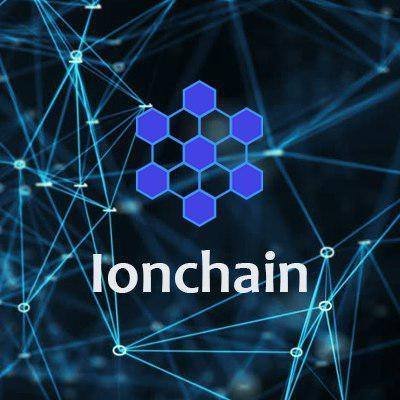
1 / What is IOCHAIN?
IOCHAIN is a high performance transactional system that does not lose its hierarchy or security.
IonChain's design principles include increased scalability while ensuring that decentralization and security are paramount. Creating cross-channel seamless cross-selling with QoE in an incentive-driven ecosystem is key to enabling IonChain to support different platforms and provide users. An easy-to-use account. Their design will allow scalability to match high security requirements with a good degree of hierarchy.
IonChain's design principles include increased scalability while ensuring that decentralization and security are paramount. Creating cross-channel seamless cross-selling with QoE in an incentive-driven ecosystem is key to enabling IonChain to support different platforms and provide users. An easy-to-use account. Their design will allow scalability to match high security requirements with a good degree of hierarchy.
2 / VISION
Leveraging
the latest technology to include a network of databases commonly
referred to as a debris, IonChain will bring large-scale systems and
distribution has a distinct scalable advantage. This
will allow IonChain to fill the gaps that have been presented in the
market and grow with the needs of businesses around the globe. The
distribution network increases the probability of IonChain
exponentially and will act to see if IONC is integrated into general
transactions. Blockchain
challenges that IonChain will address are scalability, security and
decentralization while maintaining fast migration services.
3 / Core Features of IonChain Network
- An important core feature of the IonChain network is that it has been designed with the ability to expand in mind.
- Horizontal - The network runs each node as a super-sized node, allowing the same level of protection against malicious attacks such as traditional blockchains.
- The network is easy to use, secure and allows public participation with the ability to associate weak miners with one another.
4/ SHARDING
Sharding is the partitioning of data from a large database into a smaller database. This is the most common way in which the centralized systems reach their expanding needs. For example, Ethereum supports cross-transaction and has been noted for integrating sharding for their scalable needs. A complication for blockchains is the ability to integrate sharding if it is not planned in the first place. The
challenges surrounding sharding include sharding crossover
transactions, scalability issues and security issues such as single
transactions. Since the account user will need to have multiple accounts to keep up with the sharding for the purpose of
completing the transaction.
completing the transaction.
Trade between scalability, security and decentralization must be met in a successful blockchain.
For example, for security to be increased, so data for each transaction will also be needed. This means that if you want to have large storage capacity, you will have to settle for slower transactions.
For example, for security to be increased, so data for each transaction will also be needed. This means that if you want to have large storage capacity, you will have to settle for slower transactions.
5


6/ TEAM

For more information you can visit, that IonChain Link here :
Website : https://bitcointalk.org/index.php?topic=3641957
Whitepaper : http://ionchain.io/whitepaper.pdf
ANN Thread : https://bitcointalk.org/index.php?topic=3641957
Bounty Thread : https://bitcointalk.org/index.php?topic=4547460.0
Facebook : https://www.facebook.com/chainion/
Twitter : https://twitter.com/ion_chain
Reddit : https://www.reddit.com/user/ionchain/
Telegram : https://t.me/joinchat/Iw9TNUWZmVt_8CAuW_dc9Q
Created by:
Username bitcointalk : Ethan101
Link profile Bitcointalk : https://bitcointalk.org/index.php?action=profile;u=1083885
Donate Ethereum : 0xB98f5f1C3d1461aC3A456B109DA47ec907C4D5e4

No comments:
Post a Comment